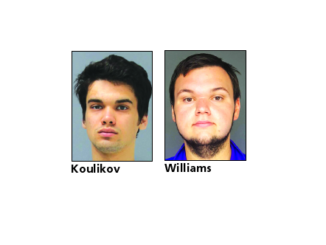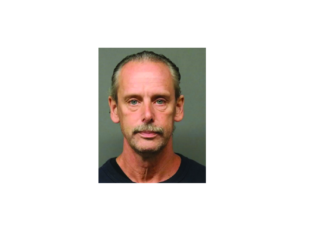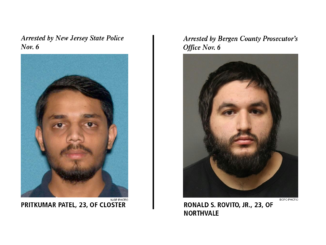
BERGEN COUNTY, N.J.—Every school district in Bergen County should have a team of professionals dedicated to providing mental health services for students—including a mental health professional—and creating these teams will be the focus of training and possible funding throughout 2020.
That’s one of multiple recommendations likely in the second Bergen County Safe Schools Task Force report, anticipated in early 2020.
Over the last year, mental health, law enforcement and school officials have worked together as part of Bergen County Prosecutor’s Office Safe Schools Task Force, which issued a 24-page report in March 2019 with recommendations from its five committees to enhance school security.
The task force was created in April 2018 by the county Prosecutor’s Office following the shootings at Marjory Stoneman Douglas High School in Parkland, Fla., where a former Bergen County student, 14-year-old Alyssa Alhadeff, was shot multiple times and killed.
‘Assessment care team’
“Each school should have an assessment care team,” said Amie Del Sordo, mental health committee chair, and vice president, CarePlus New Jersey.
Del Sordo said such a “care team” must include the school’s principal or vice principal, a mental health professional (social worker, psychologist or psychiatrist), and trained school safety personnel, such as a school resource officer, special law enforcement officer (SLEO III), or security officer.
In early 2020, the Prosecutor’s Office will issue its second school safety task force report with increased focus on efforts and recommendations to improve mental health intervention and services in Bergen County’s K-12 schools.
The task force focuses on improving security and safety in county public schools and its recommendations and services also apply to private and religious schools. The recommendations, however, are voluntary.
‘Early intervention’
“Prevention and early intervention is the committee’s goal in 2020 and we’re hoping to see positive outcomes,” said Del Sordo, providing a preview of the task force’s 2020 report.
Del Sordo said throughout 2019, the committee offered free faculty/staff training programs to help educators identify “behaviors of concern” that may require follow-up with mental health referrals and support services.
She said faculty trainings offered in 2019 taught a mental health assessment decision model that offered a method to assess mental and emotional health and distinguish what students present a risk of violent behavior and which do not.
Based on that, faculty are able to better make recommendations for mental health intervention and services, she said.
‘Being preventive’
“Not everybody that’s identified as needing [mental health] assistance is a school shooter but when there’s risks and we can get help to them by being preventive, that’s what we need to do,” said Del Sordo.
She said she would advise faculty and staff to “be curious” and take the free mental health training courses to be offered by the mental health committee in 2020.
“These trainings will be able to provide a level of safety and allow (educators) to get help for someone who’s needing our services,” she said.
Del Sordo said in 2020 more focused efforts will be made to provide training programs to students and parents on mental health awareness, warning signs of mental stress, and possible options to intervene in situations before negative consequences occur.
She said regular collaboration among mental health professionals, school faculty/staff, school administrators, and security and law enforcement personnel can make the difference in helping to identify students struggling with unrecognized and untreated mental health issues.
“A lot of people are out there suffering and not getting the services they need to prevent further problems,” said Del Sordo.
‘Identify certain signs’
“Teachers, especially, need to be able to identify certain signs and know specific [mental health] information because they are seeing students daily,” she added.
At the Prosecutor’s Office annual SNAP conference in October, Senior Supervising Prosecutor Martin Delaney, task force director, said the group’s 2020 report will lay out a comprehensive approach for improving school-based mental health interventions and services.
In addition, Delaney said the Legislative and Policy committee, chaired by Freeholder Mary Amoroso, is developing proposals for funding legislation to support mental wellness in schools.
It was unclear what funding was available, though funding for silent alarms—required under Alyssa’s Law passed earlier this year in remembrance of Alhadeff—was partly set aside in 2018’s $500 million Securing Our Children’s Future Bond Act.
Del Sordo said CarePlus received a grant from BCPO recently to conduct more training in 2020, customized for students and parents and involving person-to-person interaction.
Providing a recap of mental health committee work at the SNAP forum, Jaime Lynn Arlia, a CarePlus NJ employee and mental health committee member, said that with BCPO funding, the committee “hopefully reached” every school in Bergen County with mental health training.
‘Risk factors’
She estimated 1,734 individuals received training on “risk factors and warning signs that research has shown leads to the likelihood of violence in our schools.”
She said no “one profile” fits students prone to school violence or shootings.
“What there is is a common experience of bullying, rejection and loss and low capacity of coping skills and low levels of support” that identify students prone to violence, she said.
Ashley Morolla, a CarePlus clinical social worker and school violence prevention program manager, said two types of trainings offered on mental health include an eight-hour youth “Mental Health First Aid” program for adults 18 and older to identify warning signs of mental illness and how to work with kids in crisis.
She said an hour-long “Youth 101” training provides general information for anyone, including information on mental health warning signs and possible interventions that could be used by teachers, counselors, cafeteria workers, and crossing guards.
She said while the youth mental health crisis is “really sad and troubling” overall, the youth mental health crisis is “100 percent” treatable.
She said a “Say Something” program was begun in 2019 focused on grades 6-12, based on a program developed by Sandy Hook Promise, which addresses support services to assist students affected by bullying and other signs of mental distress.
Morolla said effects of lockdown drills on students’ emotional health will also be addressed via upcoming training sessions.
She said in 2020 trainings will offer technical assistance for assessment care teams on improving team responses based on case studies and guidance provided by U.S. Secret Service.
She said the Secret Service, which staffs a National Threat Assessment Center, offers a best practices guide for schools.
A Secret Service report issued in July identified telltale signs of school shooters after examining 41 school attacks from 2001 through 2017.
These included: many were absent from school before the attack, often through a school suspension; they were treated poorly by peers in person, not just online; they felt mistreated; some sought fame while others were suicidal.
Moreover, they found most of the weapons used came from the attackers’ homes.



